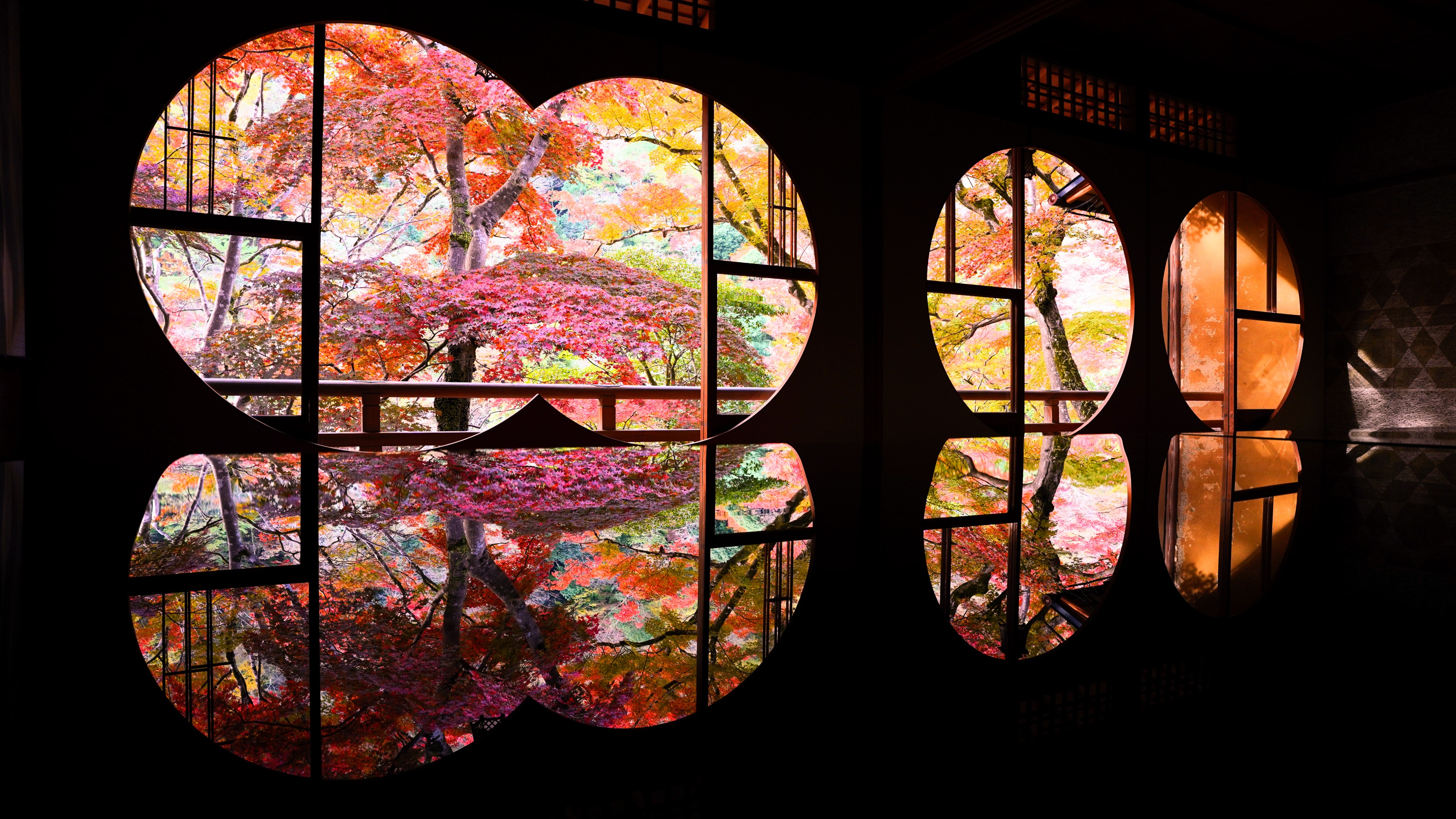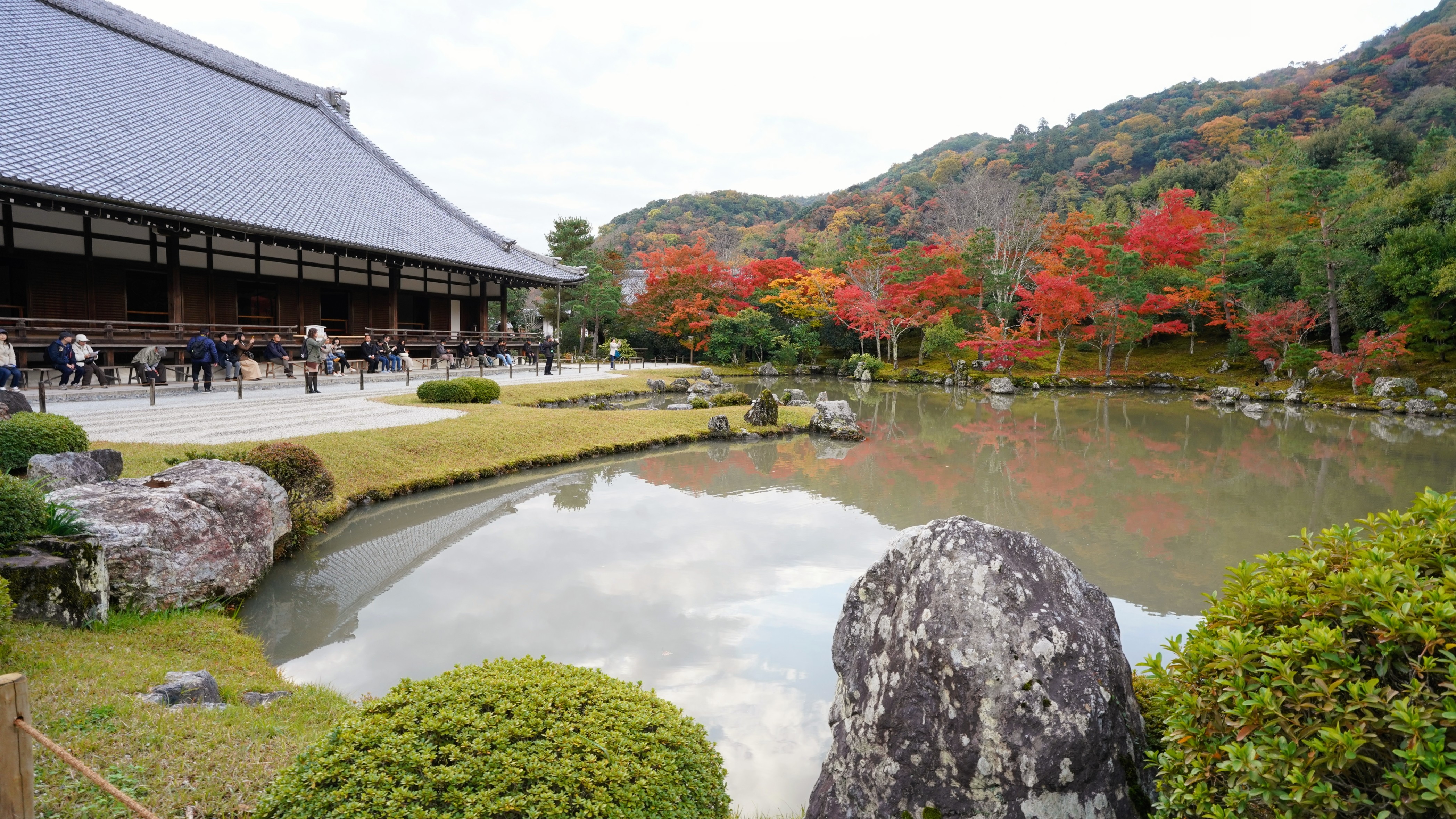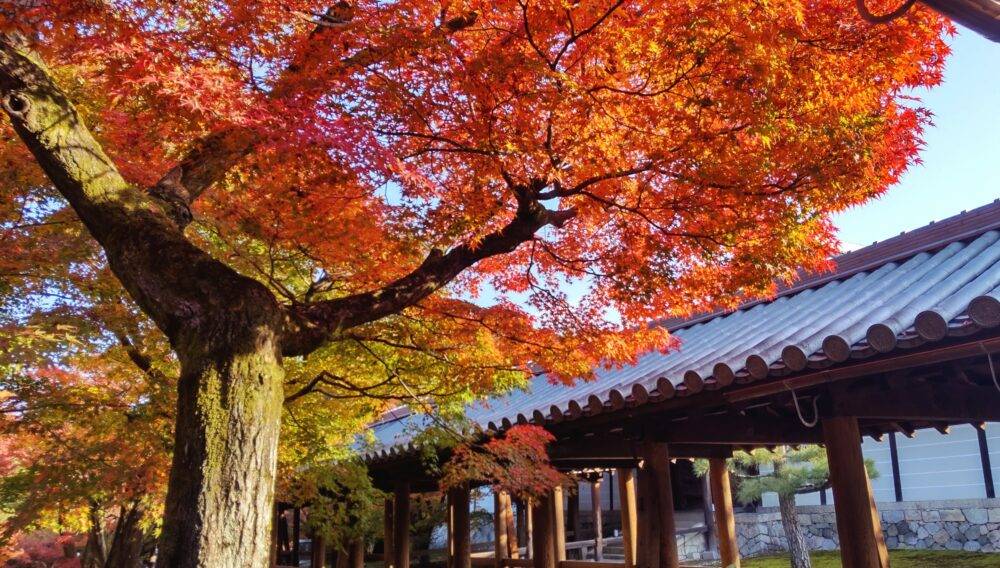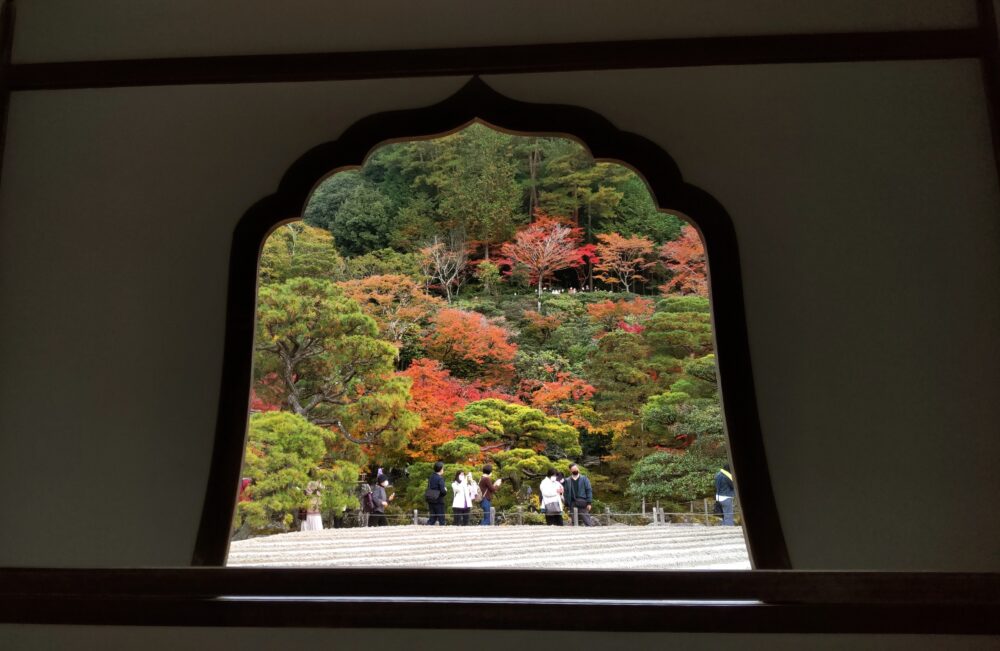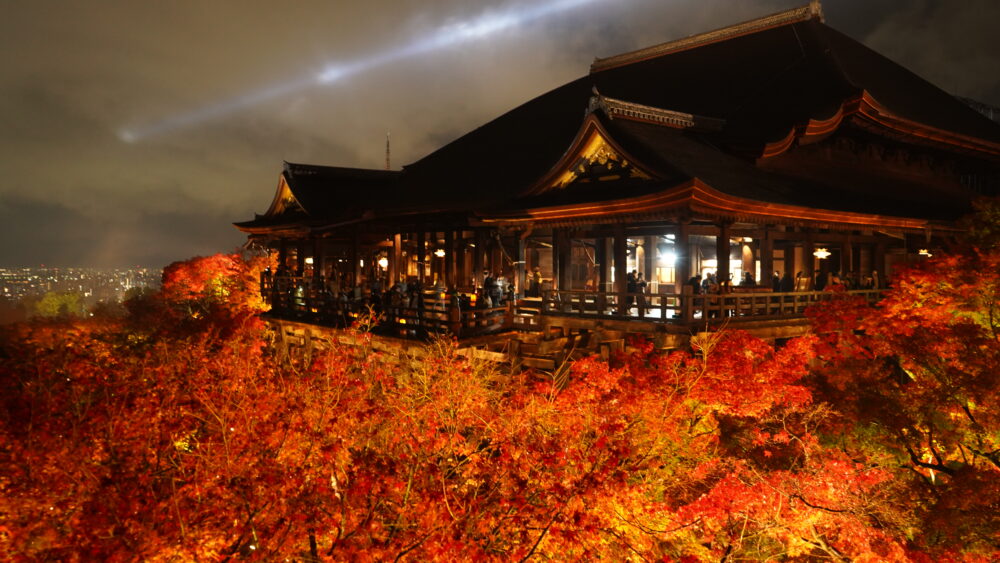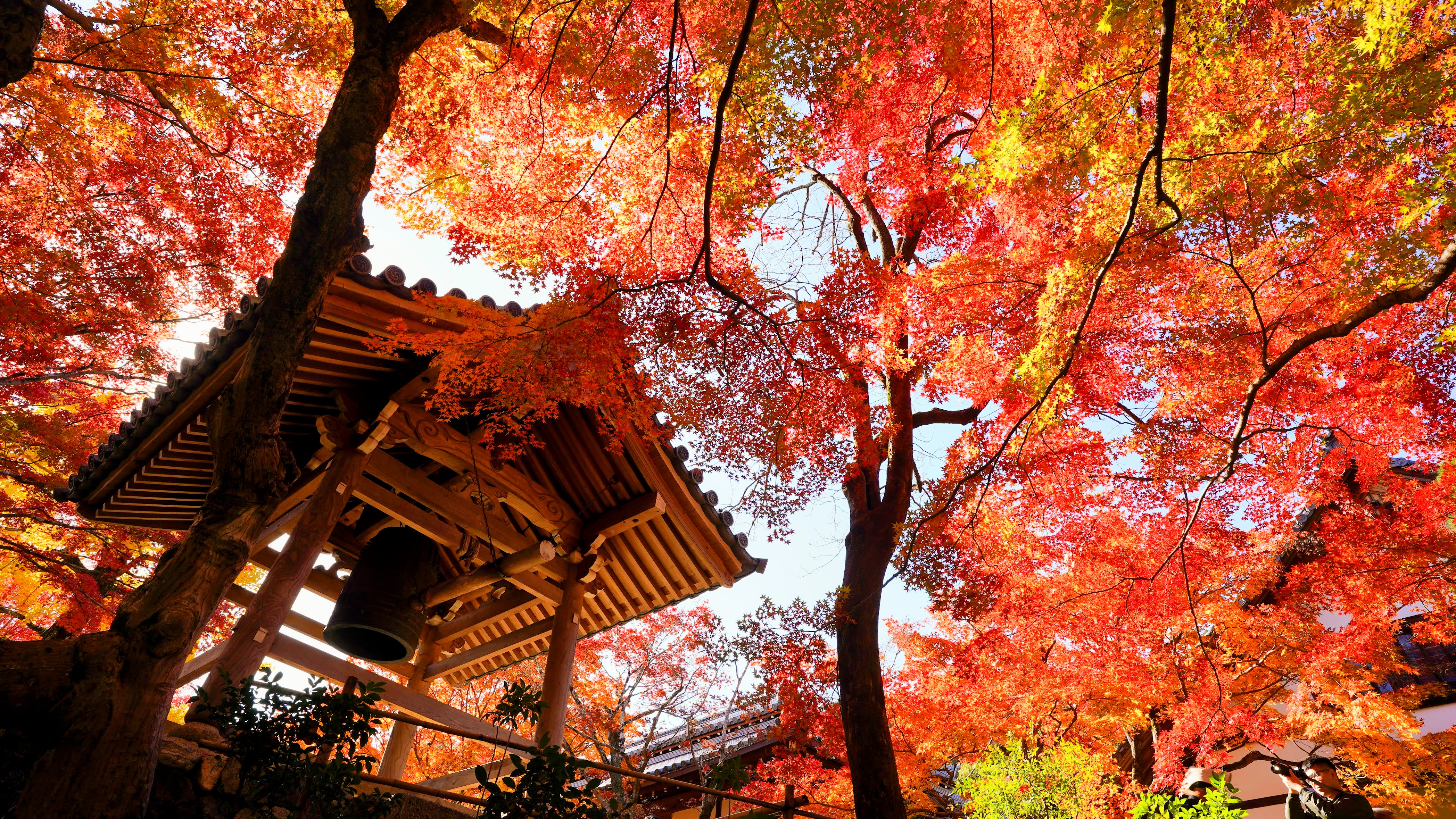Best 4 Arashiyama Gardens for Autumn 2025
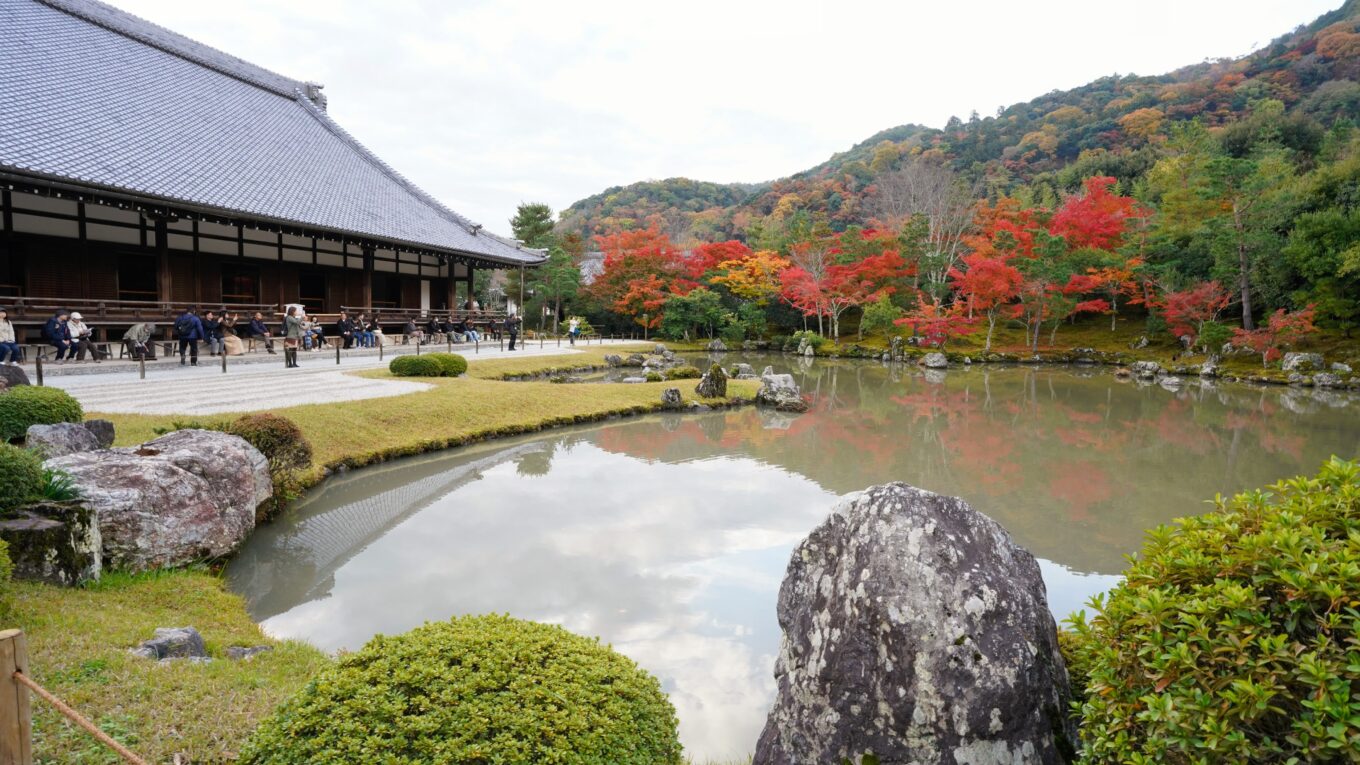
When autumn arrives, Arashiyama’s gardens transform into a breathtaking canvas of crimson and gold. This guide introduces the most stunning Japanese gardens for your fall visit, from world-famous temples to quiet, hidden gems. Let’s find Kyoto’s best autumn scenery together.
Tenryuji-temple
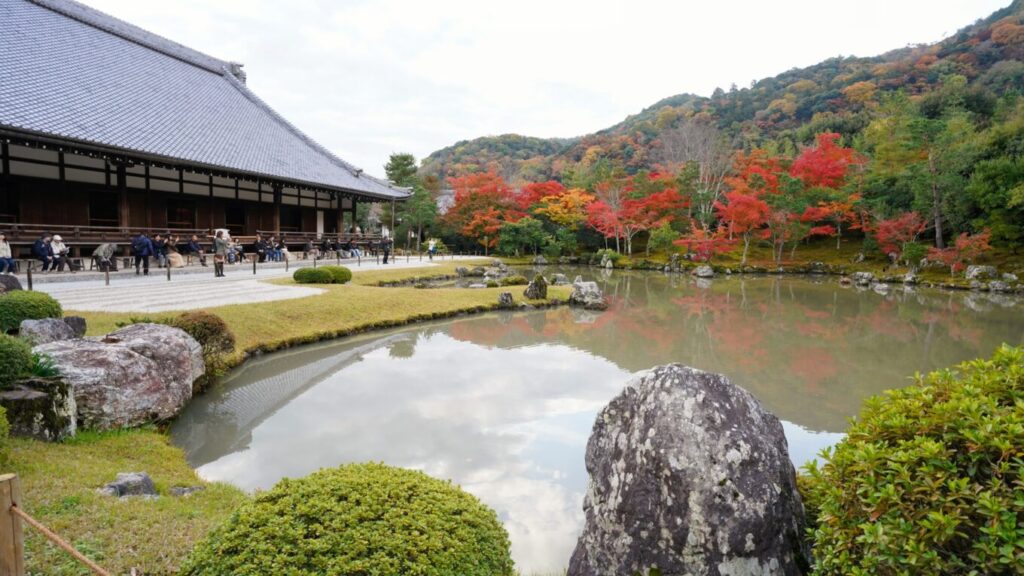
Tenryu-ji, a tranquil UNESCO World Heritage site in Arashiyama, was established in 1339. Despite numerous destructions and rebuilds, it remains a serene expanse featuring a main hall and eleven sub-temples.
Key attractions include the Sogenchi Garden, a 700-year-old strolling pond garden known for its stunning autumn foliage reflections, and the Hatto Hall with its impressive “Cloud Dragon” ceiling painting. Explore the Hyakka-en Garden for seasonal flowers and the Taho-den Hall, housing Emperor Go-Daigo’s statue amidst weeping cherry trees.
Autumn Season
For a less crowded experience, visit early, especially during the peak Fall season (late November to early December). Tenryu-ji is easily accessible by train and is a short walk from Arashiyama Bamboo Grove.
Sogenchi Garden is a captivating autumn destination. Best visited in late November to early December, its maple leaves offer a spectacular sight, beautifully harmonizing with the surrounding Arashiyama mountains. The vibrant foliage reflecting on the pond creates a stunning, serene landscape. Arrive early to avoid crowds.
Information
Hours (Autumn Period)
| Location | Regular Hours | Notes |
| Garden | 8:30 AM – 5:00 PM | Last entry 4:50 PM. Special early entry from 7:30 AM (East Gate only) during peak season (e.g., Nov 15-30, 2025). |
| Temple Buildings | 8:30 AM – 4:45 PM | Last entry 4:30 PM. May be closed on certain days for events. |
| Dharma Hall | 9:00 AM – 4:30 PM | Last entry 4:20 PM. Open daily during autumn, but closed on specific dates (e.g., Oct 28-30). |
Admission Fee
| Area/Building | Ticket Type | Price |
| Garden (Sogenchi & Hyakkaen) | High school students & older | 500 JPY |
| Elementary/Junior high students | 300 JPY | |
| Preschool children | Free | |
| Temple Buildings | In addition to Garden fee | +300 JPY |
| Dharma Hall (“Cloud Dragon”) | Separate ticket, per person | 500 JPY |
Access
| Method | Details |
| Train | Keifuku Line: Arashiyama Sta. (2 min walk) JR Sagano Line: Saga-Arashiyama Sta. (8-13 min walk) Hankyu Line: Arashiyama Sta. (13-15 min walk) |
| Bus | City Bus (11, 28, 93): Arashiyama Tenryuji-mae stop Kyoto Bus (61, 72, 83): Keifuku Arashiyama-eki-mae stop |
| Parking | Capacity: 100 cars Fee: JPY1,000 per visit Hours: 8:30 AM – 5:00 PM (from 7:30 AM during early entry) |
Yusai-tei
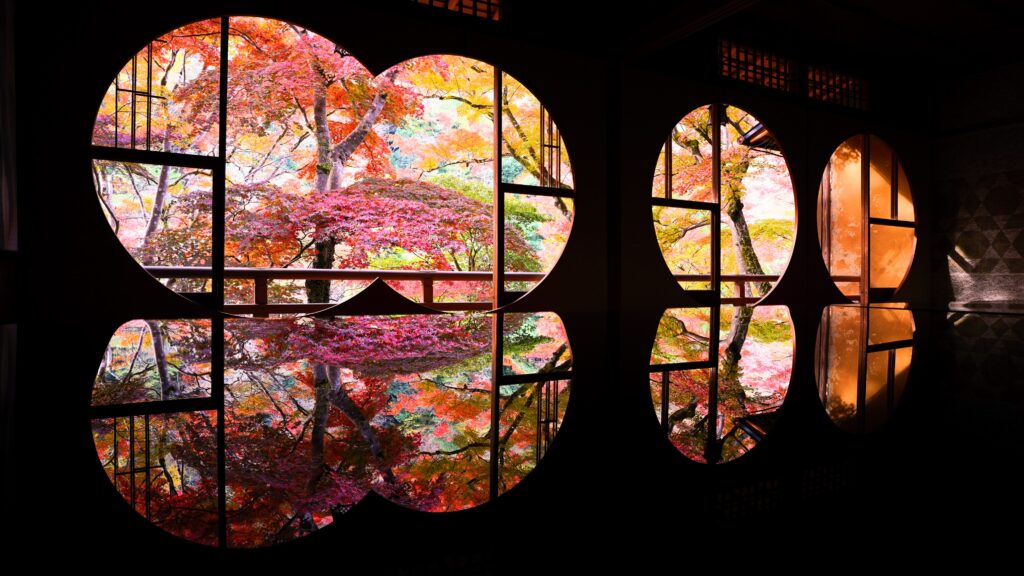
Arashiyama Yusai-tei in stunning Kyoto is more than just a sight; it offers a unique experience woven from centuries of history, captivating art, and breathtaking natural beauty. Escape the usual tourist bustle and immerse yourself in a place where every corner tells a story and every view is a masterpiece.
Originally part of an imperial residence from the Kamakura period, the current building dates back 150 years to the Meiji era. It transformed from a luxury inn into the atelier and gallery of the renowned dye artist Yusai Okuda, creator of the unique “Yume Koro-zome” technique. Its famous round windows and reflection tables have made it a social media sensation.
Autumn Season
Experience the enchanting Fall night illumination at Arashiyama Yusai-tei from mid-November to late December.
Watch as the vibrant maple leaves are illuminated, especially through the iconic round windows that frame breathtaking views of Arashiyama and the emerald Oi River. Polished black tables and water reflections create mesmerizing effects, perfect for photos. Special indoor lighting enhances the visual spectacle.
This highly popular event draws significant crowds and often requires reservations well in advance.
Information
- Open hours and Period
- Opening hours: Typically 10:00 a.m. to 4:30 p.m.(The gate closes at 5:00 p.m.)
Holiday: Every Thursday
However, hours can vary seasonally, so it’s best to check the official website before your visit. - Admission fee: 2,000 JPY (tax included) per person.
- Age Restriction: Visitors must be 13 years old or older to enter.
Reservations
Yuai-tei is by reservation only. Please make a reservation in advance by selecting a time slot from the URL below. The autumn foliage season from November to December gets crowded, so it’s recommended to book early.
Okochi Sanso Garden
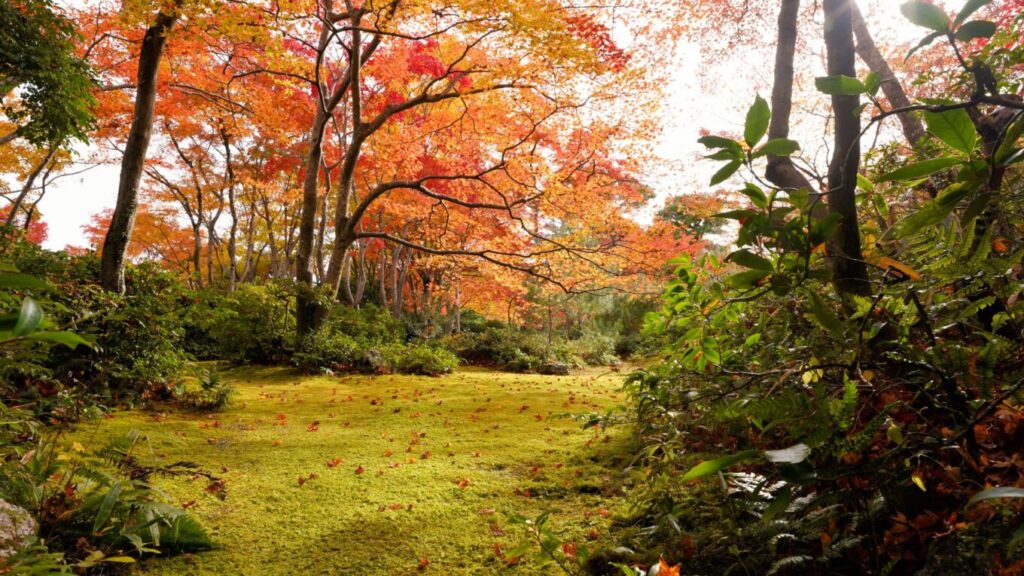
The Okochi Sanso Garden was the estate of the renowned Japanese actor Denjiro Okochi. Concerned that early films were perishable, Okochi spent thirty years and most of his earnings creating a place of lasting beauty on the slopes of Mount Ogura in Arashiyama, Kyoto.Opened to the public after his death in 1962, the villa and its gardens are still privately owned and meticulously maintained. Several of the buildings are registered as national tangible cultural properties. The admission fee includes a cup of matcha tea and a traditional sweet, which visitors can enjoy in a teahouse at the end of the walking tour.
Autumn Season
Spanning nearly five acres, this strolling garden is skillfully designed to reveal a sequence of distinct views along its prescribed path. It famously uses the technique of “borrowed scenery,” incorporating panoramic views of Mount Hiei, the Hozukyo Gorge, and the city of Kyoto into its landscape.Key structures include the Daijokaku, a main house that blends several traditional residential styles, and the Jibutsudo, a Buddhist shrine where Okochi practiced meditation. The garden is designed for year-round beauty and features pines, azaleas, cherry blossoms, and maples. These create a spectacular contrast with the adjacent Arashiyama Bamboo Grove in the fall.
Infromation
- Opening Hours9:00 AM – 5:00 PM (Last entry at 4:30 PM)
- Admission Fee
Adults: 1,000JPY
Students (Elem/Mid): 500 JPY - Crowd SituationThe garden is especially popular and crowded during the autumn foliage season (mid-November to early December).
Weekends and holidays can be very busy. - How to Avoid CrowdsFor a quieter experience, it is best to visit early in the morning or on a weekday.
Arashiyama Bamboo Forest
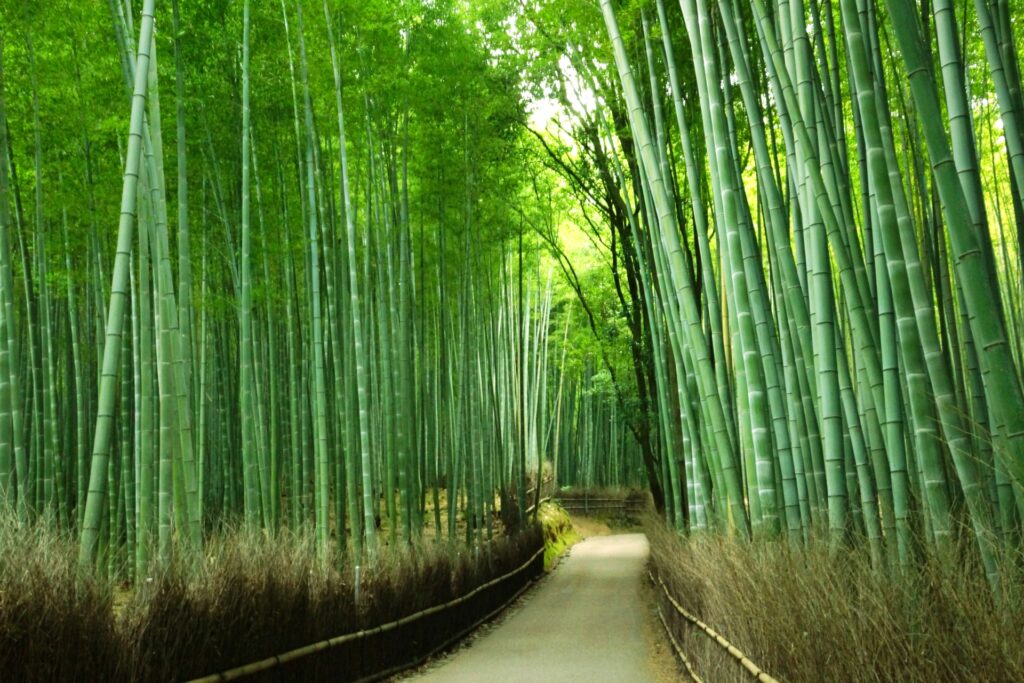
The Arashiyama Bamboo Forest offers an immersive experience where towering bamboo stalks form a stunning green canopy. The approximately 1,312-foot (400-meter) pathway is more than just a beautiful sight; it’s a journey for the senses. The rustling leaves and gentle clacking of bamboo in the wind create a unique soundscape officially recognized by the Japanese government as one of the “100 Soundscapes of Japan.” On sunny days, light filtering through the dense forest creates a magical, almost otherworldly atmosphere.
While the bamboo in the Arashiyama Forest stays green year-round, visiting in the fall provides a unique and stunning contrast. The evergreen bamboo beautifully contrasts with the brilliant red and orange leaves of the surrounding maple and ginkgo trees, creating a breathtaking scene. This vibrant color contrast makes for incredible photos and an unforgettable trip. While the bamboo forest itself doesn’t change colors, the entire Arashiyama area is a top destination for viewing fall foliage. To fully enjoy the peaceful beauty and capture the amazing colors, an early morning visit is highly recommended.
Information
Hours : Open 24 hours a day. However, there is almost no lighting at night, so it’s best to visit before sunset.
Admission Fee : Free
Best Time to VisitEarly morning, before 8:00 AM. This is the ideal time for a quiet walk and photos before crowds arrive around 10:00 AM.
Crowd LevelsExtremely high in Autumn season. As a major attraction in Arashiyama, it can get very congested, especially during peak seasons like autumn.
Tips to Avoid Crowds :
• Visit on a weekday.
• Go early in the morning (before 8:00 AM is best).
• Use public transport like trains to avoid road traffic.
• Check live cameras (e.g., on YouTube) for current conditions before you go.
• Combine with Tenryu-ji Temple: Walk through the grove (approx. 30 min) before Tenryu-ji’s north gate opens at 8:30 AM.
